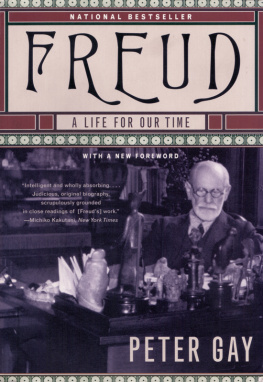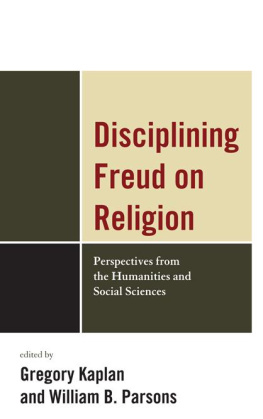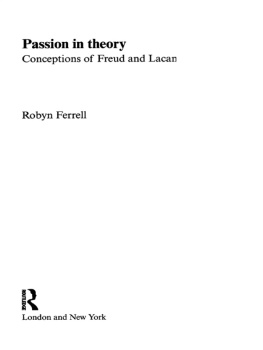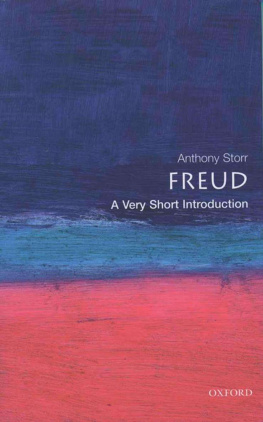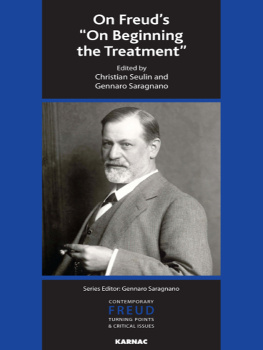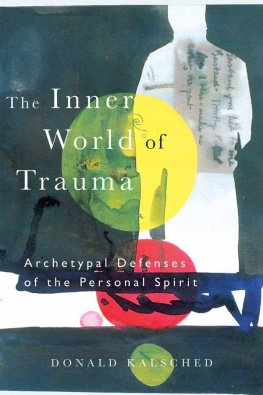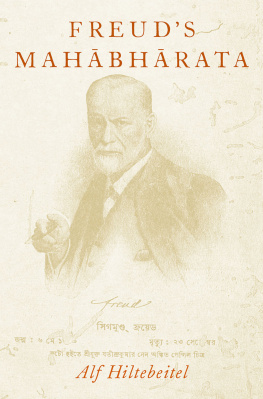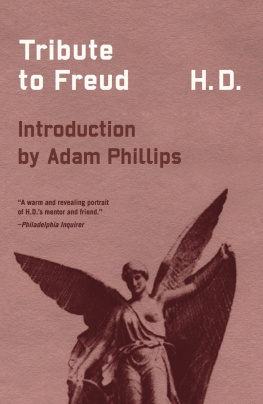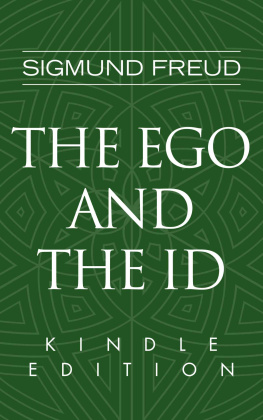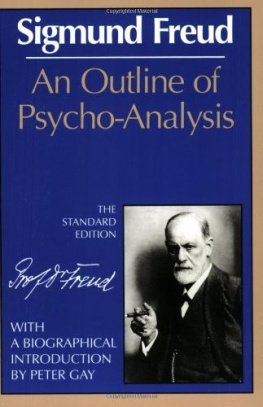Freud Sigmund - Freud: a life for our time
Here you can read online Freud Sigmund - Freud: a life for our time full text of the book (entire story) in english for free. Download pdf and epub, get meaning, cover and reviews about this ebook. City: Austria, year: 2006, publisher: W. W. Norton & Company, genre: Detective and thriller. Description of the work, (preface) as well as reviews are available. Best literature library LitArk.com created for fans of good reading and offers a wide selection of genres:
Romance novel
Science fiction
Adventure
Detective
Science
History
Home and family
Prose
Art
Politics
Computer
Non-fiction
Religion
Business
Children
Humor
Choose a favorite category and find really read worthwhile books. Enjoy immersion in the world of imagination, feel the emotions of the characters or learn something new for yourself, make an fascinating discovery.
- Book:Freud: a life for our time
- Author:
- Publisher:W. W. Norton & Company
- Genre:
- Year:2006
- City:Austria
- Rating:5 / 5
- Favourites:Add to favourites
- Your mark:
- 100
- 1
- 2
- 3
- 4
- 5
Freud: a life for our time: summary, description and annotation
We offer to read an annotation, description, summary or preface (depends on what the author of the book "Freud: a life for our time" wrote himself). If you haven't found the necessary information about the book — write in the comments, we will try to find it.
Norton celebrates the 150th anniversary of Freuds birth by reissuing Peter Gays best-selling biography, featuring a new introduction.
Freud: a life for our time — read online for free the complete book (whole text) full work
Below is the text of the book, divided by pages. System saving the place of the last page read, allows you to conveniently read the book "Freud: a life for our time" online for free, without having to search again every time where you left off. Put a bookmark, and you can go to the page where you finished reading at any time.
Font size:
Interval:
Bookmark:

Schnitzlers Century:
The Making of Middle-Class Culture, 18151914(2001)
The Bourgeois Experience: Victoria to Freud
Education of the Senses (1984)
The Tender Passion (1986)
The Cultivation of Hatred (1993)
The Naked Heart (1995)
Pleasure Wars (1998)
Reading Freud: Explorations and Entertainments (1990)
Freud: A Life for Our Time (1988)
A Godless Jew:
Freud, Atheism, and the Making of Psychoanalysis (1987)
Freud for Historians (1985)
Freud, Jews and Other Germans:
Masters and Victims in Modernist Culture (1978)
Art and Act: On Causes in HistoryManet, Gropius, Mondrian (1976)
Style in History (1974)
Modern Europe (1973), with R. K. Webb
The Bridge of Criticism: Dialogues on the Enlightenment (1970)
The Enlightenment: An Interpretation
Vol. II: The Science of Freedom (1969)
Weimar Culture: The Outsider as Insider (1968)
A Loss of Mastery: Puritan Historians in Colonial America (1966)
The Enlightenment: An Interpretation
Vol. I: The Rise of Modern Paganism (1966)
The Party of Humanity: Essays in the French Enlightenment (1964)
Voltaires Politics: The Poet as Realist (1959)
The Dilemma of Democratic Socialism:
Eduard Bernsteins Challenge to Marx (1952)

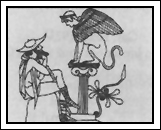
PETER GAY
W.W. NORTON & COMPANY / NEW YORK . LONDON
FOR
BILL AND SHIRLEY KAHN
DICK AND PEGGY KUHNS
First published as a Norton paperback 1998
Copyright 2006, 1998, 1988 by Peter Gay
All rights reserved
Printed in the United States of America
Manufactured by The Haddon Craftsmen, Inc.
Book design by Antonina Krass
Ornament, depicting Oedipus solving the riddle of the Sphinx, is adapted from an
ancient Greek vase painting.
Library of Congress Cataloging-in-Publication Data
Gay, Peter, 1923
Freud: a life for our time / Peter Gay.
p. cm.
Bibliography: p.
Includes index.
1. Freud, Sigmund, 1856-1939. 2. PsychoanalystsAustriaBiography. 3.
PsychoanalysisHistory, I. Title.
BF173.F85G377 1988
150.1952-dcl9 87-20454
eISBN-13: 978-0-393-07234-1
W. W. Norton & Company, Inc.
500 Fifth Avenue, New York, N.Y. 10110
www.wwnorton.com
W. W. Norton & Company Ltd.
Castle House, 75/76 Wells Street, London WIT 3QT
1 2 3 4 5 6 7 8 9 0
There is no one so great that it would be a disgrace
for him to be subject to the laws that govern normal
and pathological activity with equal severity.
Freud, Leonardo da Vinci and
a Memory of His Childhood
Sigmund Freud was born 150 years ago, on May 6, 1856. His sesqui-centennial invites a new look at his work and influence. But that is a problematic assignment since his reputation remains as controversial as it was a century ago. That other great maker of the twentieth-century mind, Charles Darwin, who made his claim to immortality in 1859 with The Origin of Species - Freud was then three years old -immediately found an enthusiastic readership. After some time of bitter controversy, even good Christians could endorse Darwins impious message of how humans became human. Nowadays, he is in secure possession of biology except for some isolated holdouts, especially among American fundamentalists, who persist in smuggling religion into an area in which, nearly everyone agrees, Christian faith really has no place.
Freud is in a different position. The parties quarreling over his legacy are so far apart that the chances of their ever agreeing, or even arranging for an acceptable compromise, are almost unimaginable. Darwin is largely free of such fundamental questioning. The generally accepted mass of evidence in behalf of natural selection is overwhelming; psychoanalysts would be delighted with a fragment of such authoritative testimony. But the proofs that psychoanalysts offer are often hard to read. The mind is more resistant to analysis, and even description, than the history of species. Granted, biologists and psychologists have gone some way toward understanding mental behavior. But the interpretations offered for, say, Freuds theory of dreams, which some of his critics thought would ruin the psychoanalytic structure, have in recent years been defended by analytically inclined specialists, who have argued persuasively that in fact what we know of dreaming speaks for rather than against one of Freuds favorite areas of research. Other analytic views are similarly open to dissent and defense.
Inevitably, this issue has become highly personal. Freuds supporters see him not just as an interesting investigator of the mind who has made some useful contributions but also as a prophet of a new dispensation -nothing less than a cultural hero. Freuds detractors see him not just as a misguided psychologist but also as a dictator, a liar, a fraud - in a word, a charlatan. There is no way, as I have noted, that would permit a compromise between these perspectives. The reader must take a position, and I have written a biography that refuses to shirk its obligation to adopt one side or the other.
I have written it, I am quick to say at the outset, in a positive tone. I admire the man and his work, and the man largely because of his work. The book is not, I trust, a piece of hero worship. I have assumed all the way through that Freud was only human, and thus open to skeptical inquiry; the adulation with which early analysts in particular greeted his every pronouncement, as though he were the infallible pope of psychoanalysis, has only done his cause harm. Thus his dream theory has been widely (and inconclusively) debated in recent years, and, as the cliche has it, the jury is still out.
More, Freuds legacy has left some issues where the evidence is too fragmentary or contradictory to permit secure conclusions. Did Freud have a love affair with his wifes sister Martha? As I point out in these pages, not much depends on a conclusive answer: Freuds ideas were no more, and no less, persuasive whether the two slept together or not. I have left the matter open, but my best conjecture is that the relationship between the two remained merely friendly. But, unwilling to be dogmatic, I have added that convincing evidence to the contrary would compel me to rephrase several passages. Again, there is that odd analysis of President Woodrow Wilson that Freud coauthored with the American diplomat William Bullitt. I have called it an embarrassment and a caricature of applied analysis. But largely on stylistic grounds, I assigned only the introductory material to Freud. Now the Freud scholar Paul Roazen has unearthed some unpublished material indicating that Freuds role in writing this embarrassment seems to have been larger than usually assumed. Only a few words in this volume will have to be redone. Still, it is better to get things, even small things, right.
FREUDS SESQUICENTENNIAL, then, is a cause for celebration rather than rueful regret. Even the psychologist who has doubts about the survival value of some among his most radical views is, I think, duty bound to find his work epochal in its importance, no matter how many details of his work will need amendment. In my judgment, he saw the human animal more clearly, and more justly, than did anyone else. He recognized that humans - all humans - must face the dilemma of civilization. For civilization is at once humankinds greatest achievement and its greatest tragedy. It requires individuals to control their impulses, deny their wishes, limit their lusts. According to Freuds wise and disillusioned perspective, people cannot live without the restraint that civilization imposes, but they cannot live really freely with those restraints. Frustration and unhappiness are part of human fate. The most significant, and most overlooked, aspect of education is its negative aspects; it teaches the child what not to do, what not to ask for, even what not to imagine. This is not welcome news, and for bringing it, Freud will never be a popular prophet. But it is worth remembering that it is the truth.
Font size:
Interval:
Bookmark:
Similar books «Freud: a life for our time»
Look at similar books to Freud: a life for our time. We have selected literature similar in name and meaning in the hope of providing readers with more options to find new, interesting, not yet read works.
Discussion, reviews of the book Freud: a life for our time and just readers' own opinions. Leave your comments, write what you think about the work, its meaning or the main characters. Specify what exactly you liked and what you didn't like, and why you think so.

